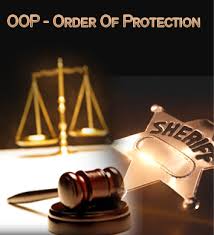In domestic violence cases, an order of protection (OOP) is generally always issued. The purpose of this order is to prohibit contact between the accused and the 'victim' in the case. This order is usually only in place until the case is addressed in court. Orders of protection can also be ordered if a spouse or person in a relationship has fear for their safety, but a domestic violence case is not open. This order will require the named individual to leave the place of mutual residency and refrain from any type of contact with the other party until there is a hearing on the matter. An order of protection can do any of the following things:
- Prohibit any direct communication
- Prohibit the accused from coming within a certain distance from the 'victim's' home or work
- Prohibit the accused from going near the school or home of a child in a protection order
- Put orders in place for child or spousal support
- Require counseling or programs for the accused
- Provide the 'victim' with the responsibility of the children for a certain period of time
Orders of protection are not just meant for spouses or immediate blood relatives. Anyone in an intimate relationship or parties who have children together can be eligible for a protection order if living in fear. The order is only in effect until a hearing takes place. A formal hearing will be ordered wherein both parties provide their testimony and any evidence to support their case and the judge will determine if a permanent protection order is necessary. If you have any questions regarding the terms of a protection order or if you need representation in a domestic violence case, contact Lancaster Law Office, LLC. Our domestic violence attorneys in Denver have years of experience assisting the accused in OOP cases. You can start by filling out an online case analysis and setting up a free initial consultation with us.


